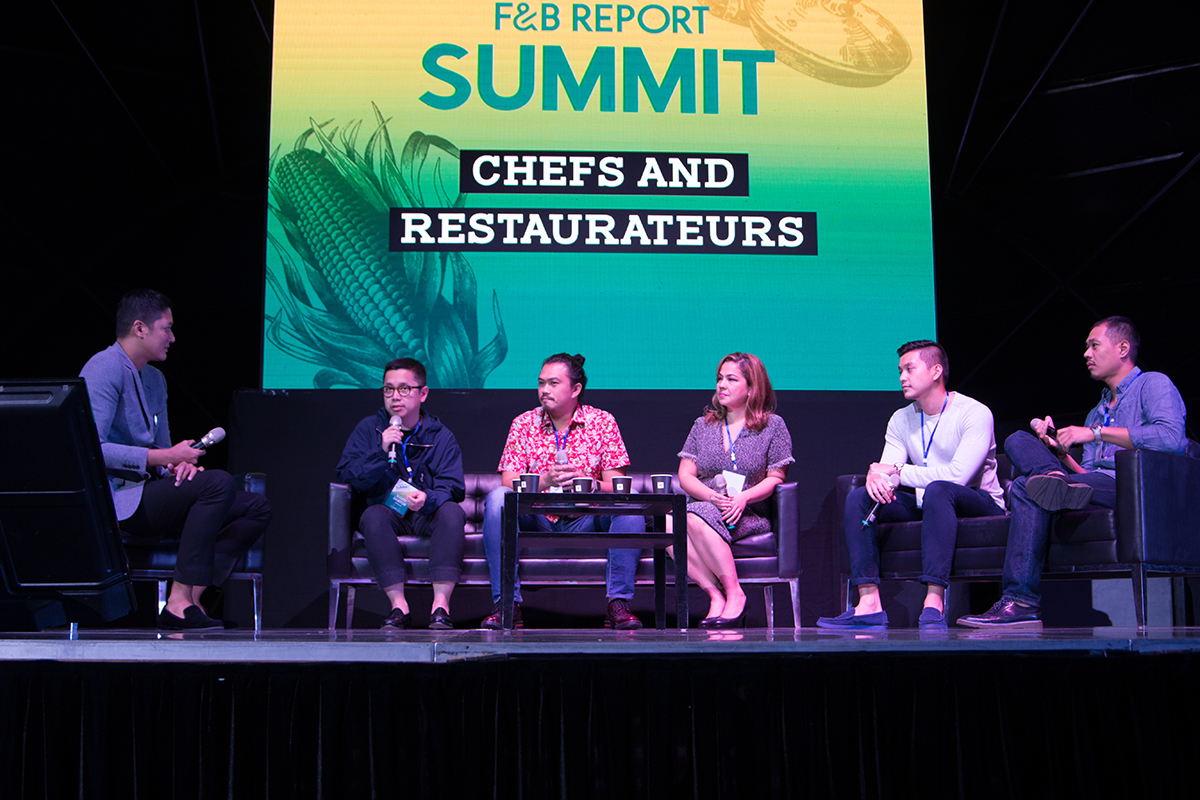Just five months after its first staging, this year’s F&B Report Summit returns with a focus on food and its relationship with social media, millennials, and a society hungry for knowledge. But the 2018 F&B Report Summit carries more than just that with different characters from the agriculture, tourism, hospitality, and restaurant industries swinging by the whole-day event to respond to the demands of a discerning audience.
“What’s the biggest factor that plays in your decision of which supplier to get?”
“For a starting restaurant, how can we get access to local farmers?”
“Is the tourism and hospitality industry affected by the TRAIN law?
“How do you handle discrimination for both front and back of the house and why is no one addressing it as well?
Throughout the F&B Report Summit, these topics of conversation swung back and forth between the audience—both live and on social media—but the main stage of course belonged to keynote speakers Erwan Heussaff, Kiddo Cosio, and Myke “Tatung” Sarthou, all of whom concentrated their efforts on bringing together everyone with shared interests and passions and even posing thought-provoking questions to a listening audience.
Let’s take a look at the biggest takeaways from the event.
Farmers and producers
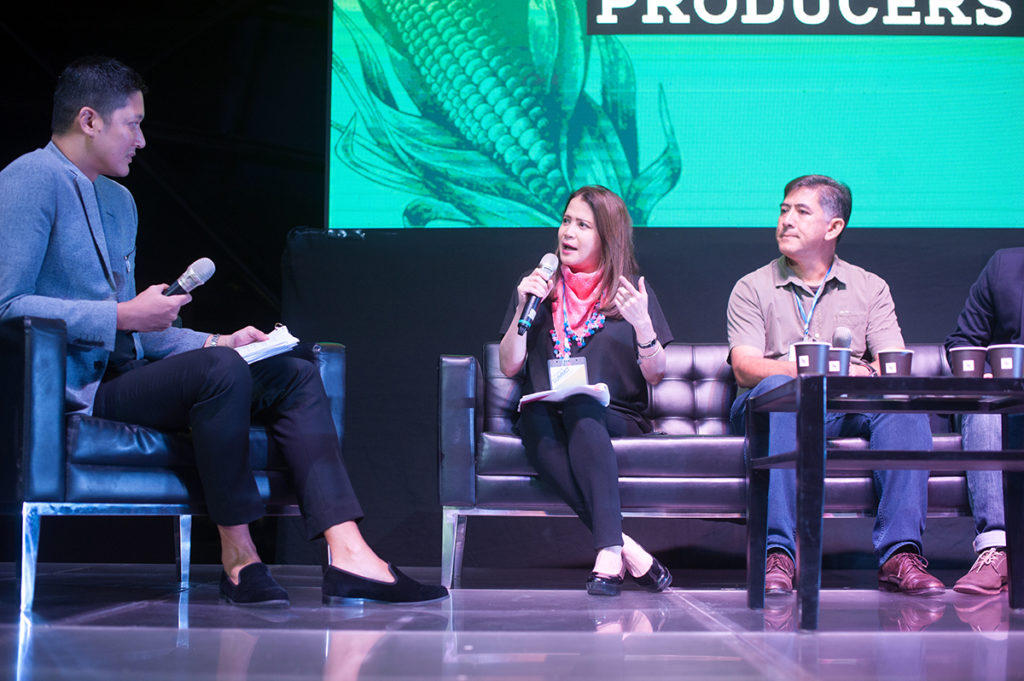
Agriculture is steadily growing
The Department of Agriculture’s Undersecretary for Administration, Agribusiness and Marketing, and Regional Engagement Berna Romulo-Puyat laid down the facts from the Philippine Statistics Authority. “In 2017, agriculture and fisheries contributed about 9.65 percent to our gross domestic product. When you look at the industry sector, about 37 percent is into food.”
Shift towards organic food
For Tina Morados of Pamora Farm, the switch to organic food has increased demand on their free-range chickens. “In spite of the price, they still buy it because of the health benefits. It’s not easy raising free-range chickens in the country, both growing them and the process. Farming is an expensive school.”
She also believes that social media played a big role in providing awareness on their organic farming methods. “It gives impact not just to individual buyers but also to institutional buyers.”
“That’s the reason why chefs are suddenly looking for organic produce because it tastes better. Flavor is the most important. Natural methods allow more complete methods to happen to the plant,” says Malipayon Farms’ Gejo Jimenez.
Gejo Jimenez of Malipayon Farms also believes that organic produce tastes much better than conventional produce. “That’s the reason why chefs are suddenly looking for organic produce because it tastes better. Flavor is the most important. Natural methods allow more complete methods to happen to the plant.”
Cacao has a future

Rob Crisostomo, who runs Seed Core Enterprises, a company that processes and imports cacao globally, had to get into the farming side of the industry to fully understand the Philippines’ potential. “The cacao industry has been growing for the past six to eight years already. In regions like Cotabato and Davao, there’s a very active forum of cacao growers. The one thing that pushes the industry forward is the development of local chocolatiers. We’re excited to see that.”
Erwan Heussaff
The influence of social media on the food industry
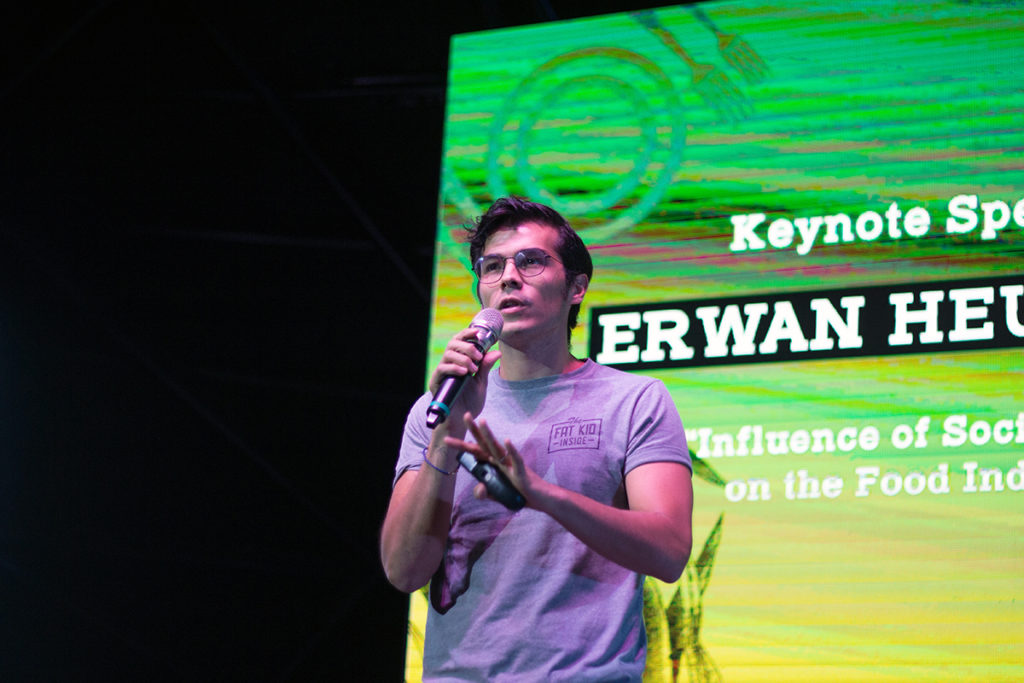
Forty to 50 percent of the phones in the Philippines are smartphones, and in 2021 the figure of smartphones is said to double, bringing that number close to 80 percent. There are around 40 million current active social media users today, and 88 percent of them are under 34 years old. People check their phones every 10 minutes and use it on an average of three hours a day, mostly for Facebook and entertainment.
Heussaff pointed out the repercussions of social media to food. “If you look at avocado toast and almond oat, as well as coconut water, we never realized that it uses a lot of water that can cause harm to the environment. There is also artificial intelligence taking over the jobs of human workers, and the stress you put on food establishments whenever you post a bad review. You never know how your posts will be understood and the impact that your post could have.”
Tourism and hospitality

State of tourism
“Tourism had a growth rate of 11.5 percent from 2016 to 2017. Regardless of what’s happening in Boracay, there’s a projected tourist arrival of at least 7.1 million this 2018. That’s an increase of 7.6 percent,” says CCA Manila’s director for business development Liza Morales.
“Tourism is also about including the entire supply chain. My personal advocacy is including the communities and bringing them together. Making their lives better means that tourism actually works,” says culinary heritage tour guide and author Clang Garcia.
Hotels vs hostels
Are hostels giving hotels a run for their money?
“Not really,” says Marriott International’s cluster general manager Bruce Winton. Despite the emergence of Airbnb and the popularity of hostels, Winton noted that both hostels and hotels are growing but in different rates.
“Tangibly it doesn’t really affect us. Some people go to hostels because they are looking for specific services that only they can provide. I think that the hotel industry is big enough, and that some hotels have numerous branches where they can accommodate guests. Are we aware of them? Yes. Are we afraid of them? No. But hostels are absolutely here to stay.”
Kiddo Cosio
Motivating millennials
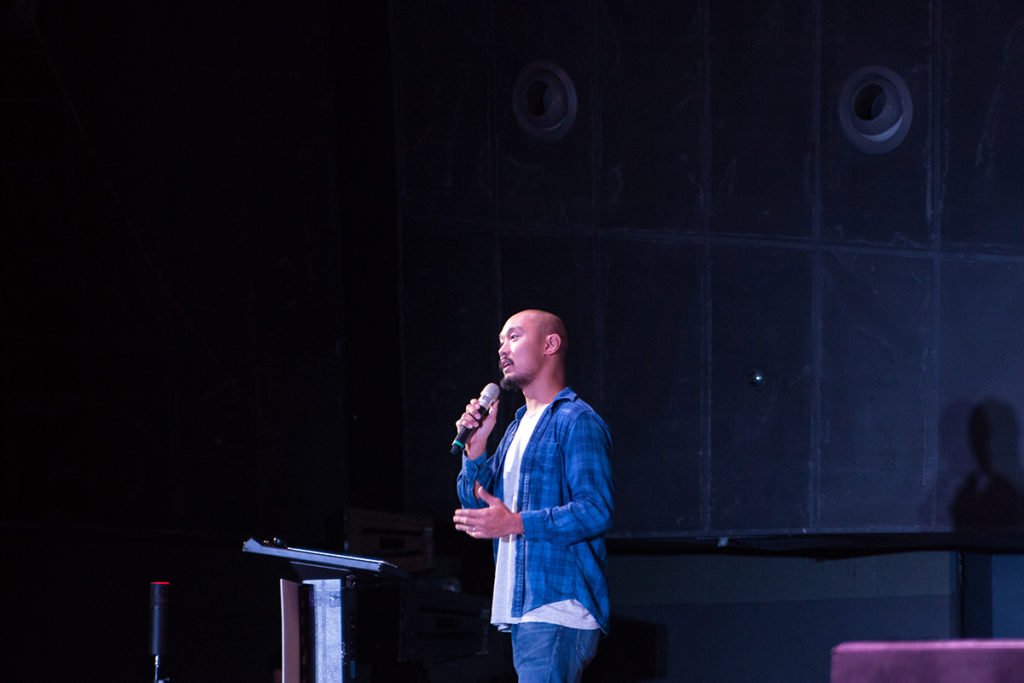
Employers are often cautious of hiring millennials because they are considered lazy, fickle, entitled, and have a reputation for defying authority. But for El Union Coffee’s Kiddo Cosio, who was born even before the whole digital revolution started, he believes that there are many good qualities in millennials that the older generation could tap if only they are open to it.
“Truth is, millennials aren’t going anywhere. If you’re older than a millennial then they’re going to outlast you and take over your businesses and they will run the world. The reason why they don’t take or yield is that they come from a different context and it’s better if we understand where they come from.”
“Millennials see other kinds of currencies like enriching their lives, selfies, and sharing with friends. But kindness and empathy make us see them as advocates of the brand,” says Kiddo Cosio.
El Union adapts a 3 to 6 p.m. break where they close shop at 3 p.m. to do anything, mostly surf, and open again by 6 p.m. to serve. Cosio admits it’s a bit much but he believes that this kind of management refreshes and balances the team. “Do not be so fixed on how things are always done. In turn, our staff members have better morale, they are less haggard, and they offer more ideas. Their life becomes more human.”
Lastly, Cosio values the importance of kindness. “Millennials see other kinds of currencies like enriching their lives, selfies, and sharing with friends. But kindness and empathy make us see them as advocates of the brand,” he concludes at the 2018 F&B Report Summit.
Chefs and restaurateurs
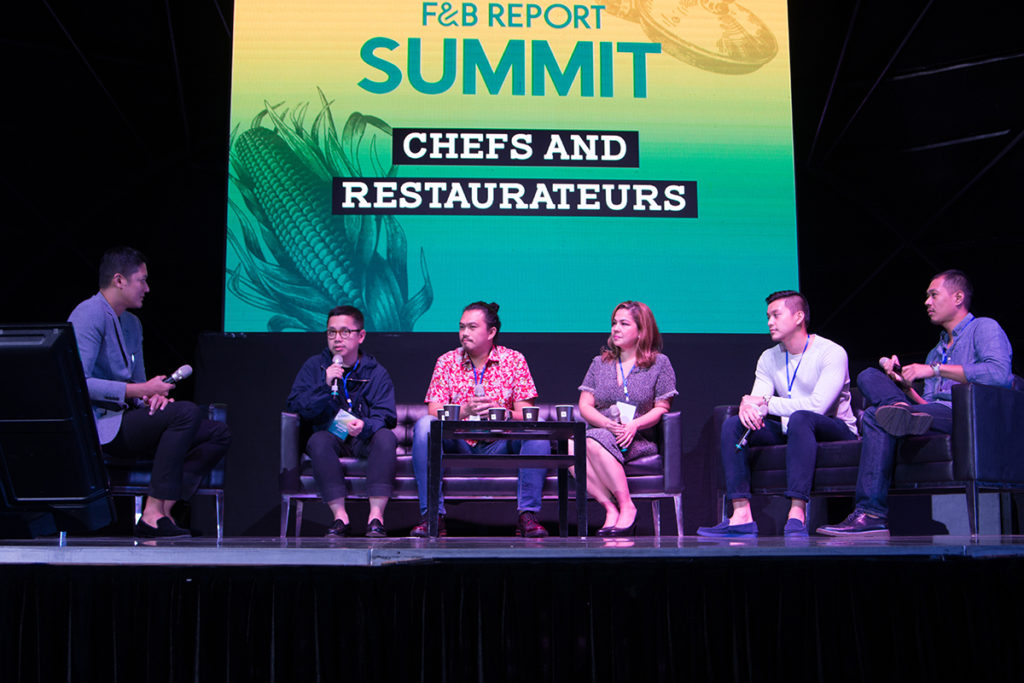
Staff welfare is key to success
“There is a lot of focus on the food and interiors of the restaurant but not much on the service. I was shocked to find and meet people who don’t really care about their staff and for me it’s become a humanitarian thing,” says Isabel Lozano, CEO and founder of The Experience Collective, a company that creates and implements guest experiences in the hospitality and retail industries.
Lozano also emphasizes that the kind of support restaurants give their own staff is crucial. “You need to focus on the strengths and weaknesses of your staff. You make the staff happy and choose the right staff. Investing, not just in the staff but the processes and systems of your establishment is important.”
Aside from monetary investments, restaurateurs can also put money into a healthy and happy work environment: decent lockers, proper meals, words of encouragement.
Myke “Tatung” Sarthou
The importance of food education

“Cooking is actually preparing food, and one thing I learned while living in Sagada is that preparing food is a spiritual act. Cooking arises from the need to nurture and that is something that connects us to the higher power. As a chef, I think this is important.”
“True education is a journey, both externally and internally, and chefs play important roles in saving the genetic diversity of crops and protecting our environment,” says Sarthou at the 2018 F&B Report Summit. One way that chefs can do that is to actually work with farmers and experience the process with them. That way they shorten the food chain by linking the produce directly with consumers.
Starting food education while young is also important to understand what constitutes a healthy life. By starting young, consumers can control their food intake and grasp the context of Filipino cuisine. “Eating local is a political act. It’s a challenge for the younger generation to go beyond the usual education and make a difference in the industry and the country.”





